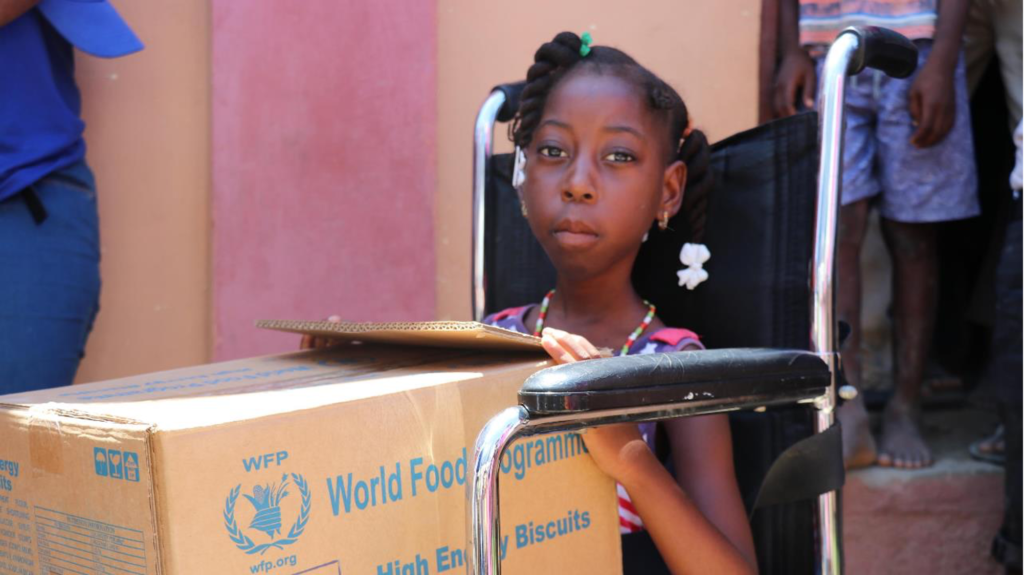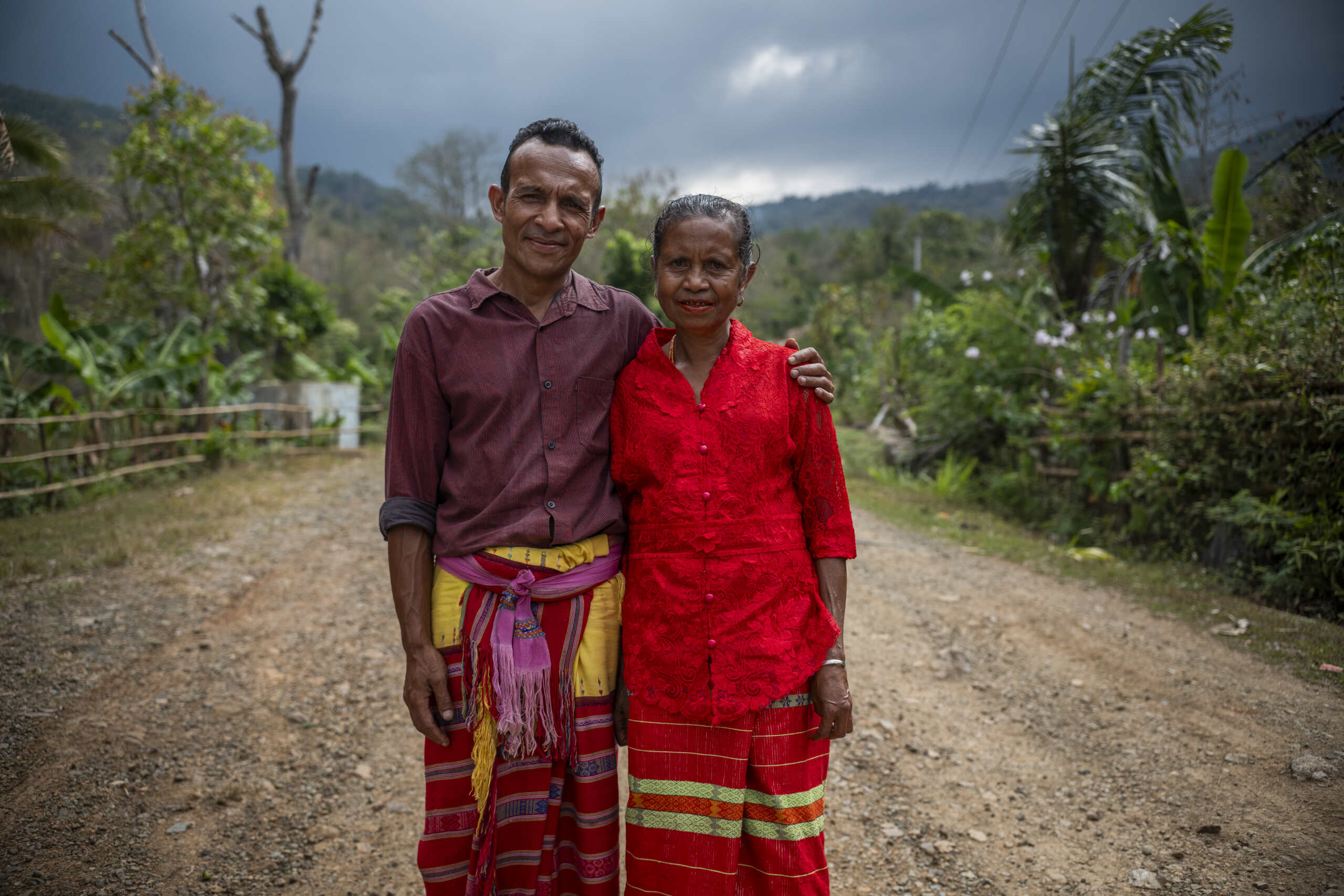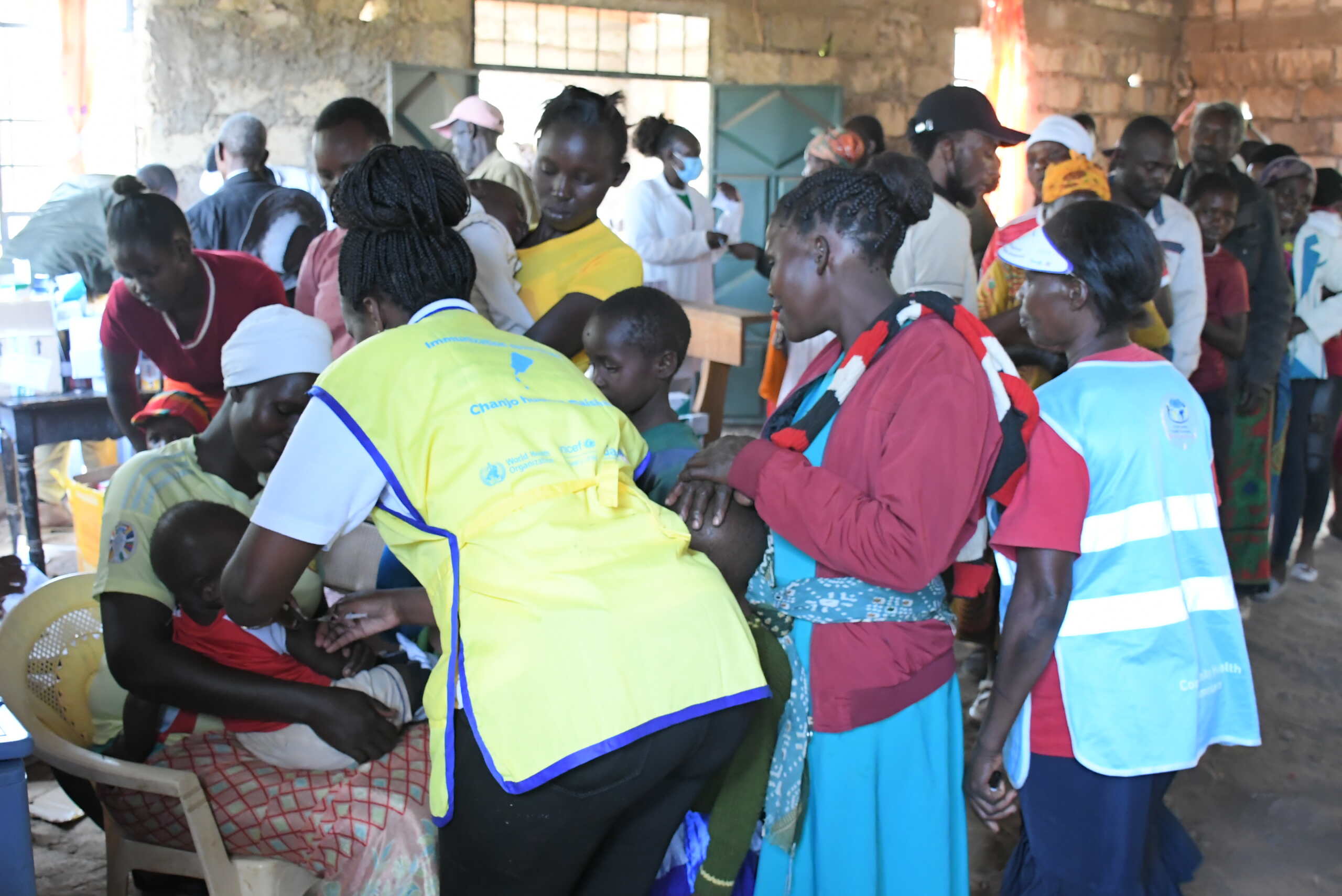World Food Programme’s disability-inclusive path to zero hunger
Stories | January 18, 2022
A new partnership with CBM Global Disability Inclusion will enable the World Food Programme to fight poverty and work to end hunger for people with disabilities.
For almost 15 years, the team of advisers in CBM Global’s Inclusion Advisory Group has worked with organisations, governments and institutions to provide technical expertise in disability inclusion, building on its 113-year history as a world leader in disability inclusive development.
The World Food Programme (WFP) is the world’s largest humanitarian organisation, mandated to achieve “zero hunger”. In 2020 it delivered food-related assistance to 115 million people across 84 countries.
The WFP Disability Inclusion Road Map, launched in 2020, outlines WFP’s commitment to ensuring all WFP programmes reach people with disabilities. This is critical if we are to achieve a zero-hunger world.
People with disabilities are more likely to be food insecure: humanitarian emergencies disproportionately impact people with disabilities and there are clear two-way links between malnutrition and disability.
Kavita Brahmbhatt, Senior Disability Inclusion Advisor at WFP Headquarters in Rome, explains: “WFP has spent the last two years strengthening our organisational set-up… Now that we have systems and guidance in place to support disability inclusion in WFP, we want to ensure these are implemented in our programmes at a local level and where it matters most.”
Demand for disability inclusion advice is growing rapidly within WFP. At CBM, we know that getting timely access to disability inclusion technical advice can make humanitarian and development programs more effective.

For the past decade, the CBM Australia team in our Inclusion Advisory Group has provided technical advice through the Department of Foreign Affairs and Trade’s (DFAT) DID4All Helpdesk. This support was extended to World Food Programme and was a catalyst for the creation of WFP’s own Helpdesk. The Australian team will lead on the WFP Partnership, also drawing in experts from across the CBM Global team.
“We chose to work with CBM [Global] because they are an organisation with a great track record on disability inclusion, particularly in the humanitarian field”, Kavita reflects. “We also like CBM’s approach — they are leaders in their field, they have excellent networks with the disability movement, they produce high-quality guidance and research, and their online products are accessible, well designed and user driven.”
The web-based helpdesk provides on-demand technical advice and training about disability inclusion to World Food Programme employees around the world.
For example, World Food Programme employees can submit requests ranging from ‘how to best consult people with disabilities in community engagement activities’ to ‘how to ensure that information about their services are accessible to people with a diverse range of impairments’.
CBM Global’s inclusion advisers can provide technical advice such as recommendations and guidance for disability-inclusive programming, in addition to broader support including the design of training and awareness sessions for World Food Programme employees and the delivery of webinars on specific topics such as cash-based programming or disability-inclusive livelihoods.
Advice and support will be tailored to the individual situation, location and operational context, in recognition that what may be effective in one scenario may not be applicable in another.
Due to the size and scope of WFP’s work, the lessons learnt through the Partnership, can have an impact on the wider humanitarian system. Ongoing monitoring, evaluation and learning will be carried out across the 12-month contract, which runs until June 2022.
https://www.cbm.org.au/stories/world-food-programme-partnership-disability-inclusive-road-to-zero-hunger
Related Stories

How CBM is making a difference in Indonesia
For more than 45 years, CBM Global has been working alongside communities in Indonesia to ensure people with disabilities...

Coordinating inclusive health outreach in Meru County
For many households in Meru’s rural and remote areas, basic health services are physically...

Share your advocacy preferences with us
Thank you for helping us to advocate for the one billion people with disability globally. CBM Australia advocate across...
